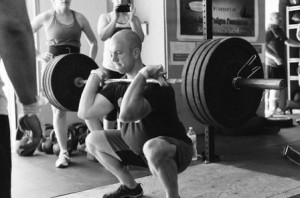- Calls to this hotline are currently being directed to Within Health, Fay or Eating Disorder Solutions
- Representatives are standing by 24/7 to help answer your questions
- All calls are confidential and HIPAA compliant
- There is no obligation or cost to call
- Eating Disorder Hope does not receive any commissions or fees dependent upon which provider you select
- Additional treatment providers are located on our directory or samhsa.gov
Social Media Influences on Muscle Dysmorphia
Contributor: Crystal Karges, MS, RDN, IBCLC, Special Projects Coordinator at Eating Disorder Hope/Addiction Hope
Society in general may applaud and look positively on a person’s desire to make healthier choices when in comes to food and exercise. Following a rigorous diet and work-out routine is often seen favorably by others, and these types of trends are perhaps most routinely observed on social media.
On every kind of social media platform, individuals may find community and gain a following specifically for following a certain diet and exercise regiment. This may include before and after pictures, images of work-out gear, foods eaten, etc. Many individuals may purposefully follow certain accounts that trend in these categories.
Understanding Muscle Dysmorphia
 Anything taken to an extreme measure can be potentially dangerous, and the same is true of working out and exercising. Some individuals who become obsessive about developing a certain type of physique, no matter what the cause, may be dealing with muscle dysmorphia, a psychological disorder characterized by negative body image and an obsessive desire to develop a muscular physique.
Anything taken to an extreme measure can be potentially dangerous, and the same is true of working out and exercising. Some individuals who become obsessive about developing a certain type of physique, no matter what the cause, may be dealing with muscle dysmorphia, a psychological disorder characterized by negative body image and an obsessive desire to develop a muscular physique.
Muscle dysmorphia is a sub-type of body dysmorphic disorder, as a person becomes so preoccupied with the appearance of their body, that it begins to negatively influence their quality of life.
Affecting mostly males, muscle dysmorphia can lead an individual to begin neglecting important responsibilities in life, including a career, finances, and relationships, in order to pursue what they feel is necessary to develop their physique. This might include unnecessarily long hours spent at the gym, the use of multiple supplements, steroids, and/or stimulants to develop physique, and/or the alteration of one’s diet.
The Powerful Influence of Social Media
 For individuals who are susceptible to developing muscle dysmorphia or who may already be struggling with this condition, social media can be a tricky place to navigate. Because social media has become such an influential force in our lives, it can be difficult to separate oneself from the ideas that are continuously promoted through this venue.
For individuals who are susceptible to developing muscle dysmorphia or who may already be struggling with this condition, social media can be a tricky place to navigate. Because social media has become such an influential force in our lives, it can be difficult to separate oneself from the ideas that are continuously promoted through this venue.
It is easy to feel trapped into a rat-race of comparison with other people, as things that are posted are carefully crafted to create one’s “best” image. If you or someone you know has be dealing with muscle dysmorphia, consider the role of social media in your own life. Are these platforms being used to feed an ongoing obsession? If so, it may be necessary to reevaluate frequency and use of social media.
Community Discussion – Share your thoughts here!
What do you think are some of the common ways in which social media can influence muscle dysmorphia?
 About the Author: Crystal is a Masters-level Registered Dietitian Nutritionist (RDN) with a specialty focus in eating disorders, maternal/child health and wellness, and intuitive eating. Combining clinical experience with a love of social media and writing, Crystal serves as the Special Projects Coordinator for Eating Disorder Hope/Addiction Hope, where her passion to help others find recovery and healing is integrated into each part of her work.
About the Author: Crystal is a Masters-level Registered Dietitian Nutritionist (RDN) with a specialty focus in eating disorders, maternal/child health and wellness, and intuitive eating. Combining clinical experience with a love of social media and writing, Crystal serves as the Special Projects Coordinator for Eating Disorder Hope/Addiction Hope, where her passion to help others find recovery and healing is integrated into each part of her work.
As a Certified Intuitive Eating Counselor, Crystal has dedicated her career to helping others establish a healthy relationship with food and body through her work with EDH/AH and nutrition private practice.
The opinions and views of our guest contributors are shared to provide a broad perspective of eating disorders. These are not necessarily the views of Eating Disorder Hope, but an effort to offer discussion of various issues by different concerned individuals.
We at Eating Disorder Hope understand that eating disorders result from a combination of environmental and genetic factors. If you or a loved one are suffering from an eating disorder, please know that there is hope for you, and seek immediate professional help.
Last Updated & Reviewed By: Jacquelyn Ekern, MS, LPC on February 25, 2016
Published on EatingDisorderHope.com

The EatingDisorderHope.com editorial team comprises experienced writers, editors, and medical reviewers specializing in eating disorders, treatment, and mental and behavioral health.

